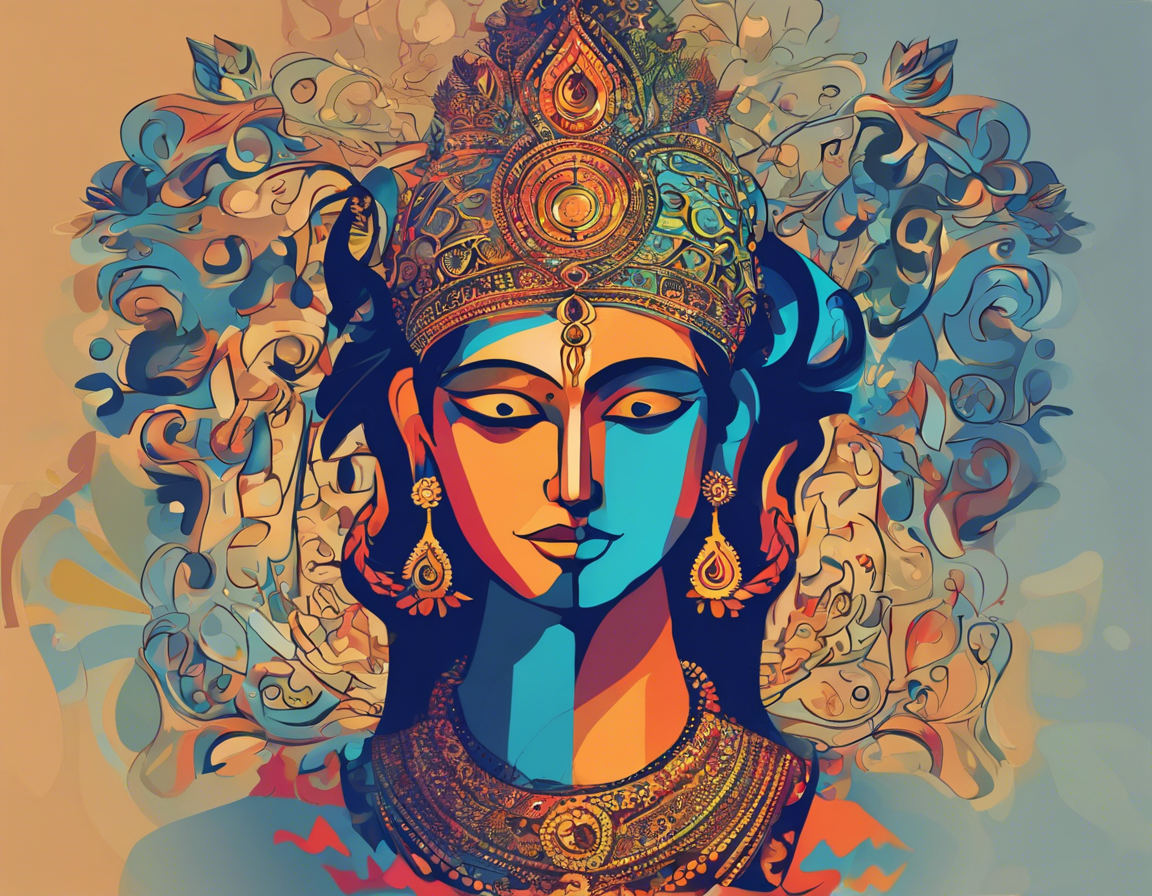The Pradosh Vrat, also known as Pradosham, is a significant Hindu fasting day that falls on the 13th day of each fortnight in the Hindu lunar calendar. This sacred day is dedicated to Lord Shiva and Goddess Parvati and holds immense religious and spiritual significance for devotees. The observance of Pradosh Vrat is believed to bestow blessings, remove obstacles, and fulfill the wishes of devotees who faithfully observe the vrat rituals.
Understanding the Origins and Significance of Pradosh Vrat
Pradosh Vrat has its roots in Hindu mythology and is associated with the churning of the divine ocean (Samudra Manthan) by gods and demons to obtain the nectar of immortality (amrit). During this cosmic event, known as Samudra Manthan, a deadly poison (halahala) emerged from the ocean threatening to destroy the universe. In order to save the world, Lord Shiva consumed the poison and held it in his throat, earning him the name Neelkanth (the one with a blue throat). The day when Lord Shiva consumed the poison and neutralized its effects is celebrated as Pradosh Vrat.
The Rituals and Observance of Pradosh Vrat
Devotees who observe Pradosh Vrat typically fast from sunrise to sunset, abstaining from food and water. The fasting is broken after the evening prayers (Puja) offered to Lord Shiva and Goddess Parvati during the auspicious time known as Pradosham. The Pradosh Kaal, a specific time period of approximately 1.5 hours before and after sunset, is considered highly propitious for worshiping Lord Shiva and seeking his blessings.
The Benefits of Observing Pradosh Vrat
- Blessings of Lord Shiva: Devotees who observe Pradosh Vrat with sincerity and devotion are believed to receive the blessings of Lord Shiva for peace, prosperity, and spiritual growth.
- Removal of Obstacles: It is believed that observing Pradosh Vrat helps in overcoming obstacles, challenges, and negative influences in one’s life.
- Fulfillment of Desires: Many devotees observe Pradosh Vrat to seek the fulfillment of their wishes and desires by invoking the grace of Lord Shiva and Goddess Parvati.
- Karmic Cleansing: The merits of fasting and praying during Pradosh Vrat are said to help in purifying one’s karma and seeking forgiveness for past mistakes.
Pradosh Vrat Dates for 2024
In 2024, Pradosh Vrat dates fall on the following days:
- January 15 (Monday) – Soma Pradosh Vrat
- January 29 (Monday) – Bhauma Pradosh Vrat
- February 13 (Tuesday) – Soma Pradosh Vrat
- February 28 (Wednesday) – Bhauma Pradosh Vrat
- March 14 (Thursday) – Guru Pradosh Vrat
FAQs (Frequently Asked Questions)
- Can anyone observe Pradosh Vrat, or is it meant only for certain individuals?
-
Pradosh Vrat can be observed by anyone who wishes to seek the blessings of Lord Shiva. There are no restrictions based on gender, age, or social status.
-
What are the typical offerings made during Pradosh Vrat Puja?
-
Some common offerings include milk, water, bel leaves, fruits, flowers, incense, and camphor. These offerings are made with devotion and sincerity during the Puja.
-
Is it necessary to fast for the entire day during Pradosh Vrat?
-
While it is ideal to fast from sunrise to sunset, individuals who are unable to do so due to health reasons or other constraints can modify the fast as per their capabilities.
-
What prayers or mantras should be chanted during Pradosh Vrat?
-
Devotees can chant the Maha Mrityunjaya Mantra, Shiva Mantras, or Pradosh Vrat Katha during the Puja to invoke the blessings of Lord Shiva.
-
Can Pradosh Vrat be observed at home, or is it preferable to visit a temple?
-
Pradosh Vrat can be observed at home with devotion and sincerity. However, visiting a Shiva temple during Pradosh Kaal is considered highly auspicious.
-
Are there any specific rituals to be followed after breaking the fast in the evening?
-
After breaking the fast during Pradosh Vrat, devotees can partake in a simple meal, offer prayers, and seek the blessings of Lord Shiva and Goddess Parvati for their well-being.
-
How does observing Pradosh Vrat benefit one’s spiritual journey?
-
Observing Pradosh Vrat helps in fostering devotion, discipline, and spiritual growth. It is believed to purify the mind, body, and soul, leading to inner peace and harmony.
-
Can women observe Pradosh Vrat during menstruation?
-
Women undergoing menstruation are generally advised not to observe rigorous fasting rituals. They can still participate in prayers, meditation, and simple Puja activities during Pradosh Vrat.
-
Are there any specific taboos or restrictions to be followed during Pradosh Vrat?
-
It is advisable to avoid consuming non-vegetarian food, alcohol, tobacco, and engaging in negative thoughts or actions during Pradosh Vrat to maintain the sanctity of the observance.
-
What is the significance of performing Rudrabhishekam during Pradosh Vrat?
- Rudrabhishekam is a sacred ritual where Lord Shiva is worshipped with offerings of water, milk, yogurt, honey, ghee, and other auspicious substances. Performing Rudrabhishekam during Pradosh Vrat is considered highly meritorious and beneficial for devotees.
In conclusion, the observance of Pradosh Vrat is a powerful spiritual practice that enables devotees to connect with the divine energy of Lord Shiva and seek his blessings for their well-being and prosperity. By following the prescribed rituals, fasting with devotion, and offering prayers during Pradosh Vrat, devotees can experience inner transformation, peace, and divine grace in their lives.
